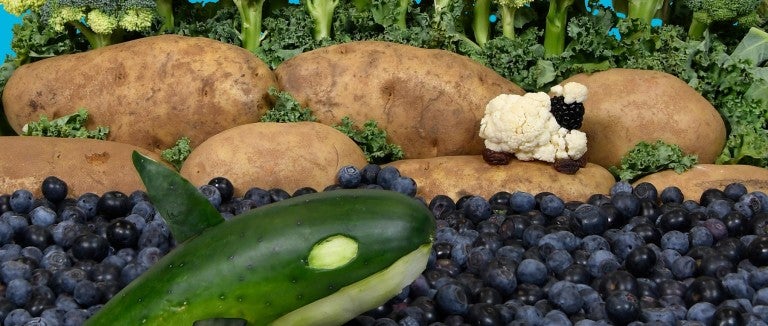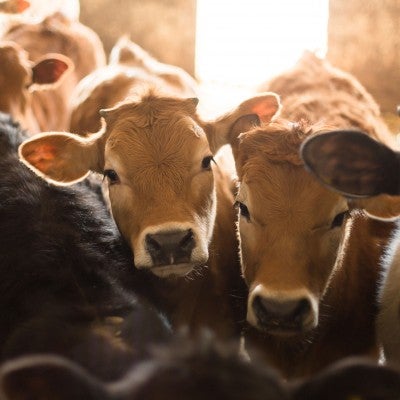There’s a surprisingly simple way to make a big difference in the lives of animals: incorporating more plant-based foods.
The more plants you eat, the more animals you’ll spare from lives of suffering. Fewer mother pigs will be kept in crates so small they can barely move. Fewer egg-laying hens will be crammed into tiny cages. And fewer animals will be sent to slaughter.
It’s not just animals who benefit when people eat more plants. The current system of intensive animal agriculture is unsustainable and inefficient, and it’s harming our planet. Growing crops to feed to animals that people then eat is less efficient than growing crops that people eat directly. Plus, factory farming is making climate change worse: Recent studies suggest that nearly one-third of human-caused greenhouse gas emissions come from global food production methods and consumption habits.
Wild animals are also paying the price. Environmental studies warn that large-scale meat and dairy production is pushing species to extinction as forests and grasslands are used as grazing land or to grow food for animals.
Factory farming harms humans, too. Animal-based diets put the world at risk for infection by antibiotic-resistant bacteria from factory farms, where the same medications prescribed to humans promote growth and manage disease in crowded, dirty conditions. Medical research links consuming animal-based diets with heart disease, high blood pressure, stroke, Type 2 diabetes and cancer.
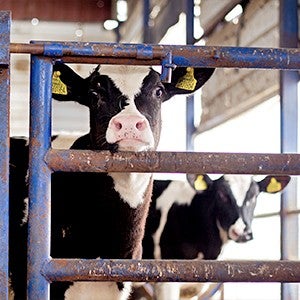
Is used for meat, dairy and aquaculture production systems—despite providing just 18% of global calorie production.
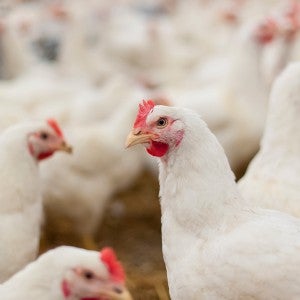
Are eaten by Americans each year; replacing some meals with plant-based options saves birds from suffering on factory farms.
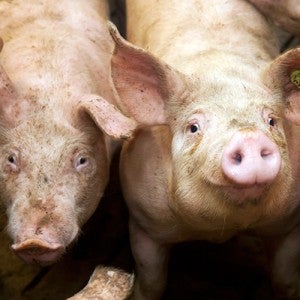
Are used and killed for food globally each year.
One day a week can make a world of difference for your health, animals and the environment! Start by trying a new vegetable-packed dish or swap your usual entrée with a plant-based meat alternative.
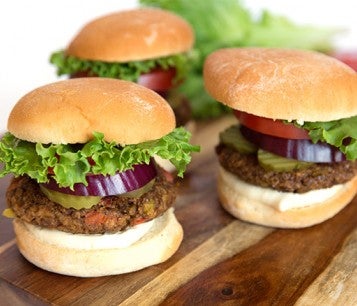
How you can help
The good news is that we can work toward a more compassionate world every time we sit down to eat!
Switching to a more plant-based diet can be simple and inexpensive. And it doesn’t have to be all or nothing: Try eating meatless for a few meals a week or progressively swapping in more plant-based options. There are plenty of delicious vegan recipes to be found on the internet.
Not sure how to start? Try these tips:
- Replace meat with proteins such as beans, peas and lentils, as well as tofu and tempeh (made from soybeans) and seitan (made from wheat gluten).
- Eat whole-wheat bread and pasta, brown and wild rice, and grains such as oats, quinoa and farro.
- Consume lots of fruits and vegetables.
- Swap plant-based ingredients into your favorite recipes.
- Give plant-based egg, dairy and meat products a try—there are so many options that you’re sure to find one you enjoy!
The plant-based pantry
Having these foods on hand—in addition to regular staple pantry items such—will make animal-friendly cooking even easier.
Vegan pantry staples
- Canned tomatoes
- Vegetable broth
- Sauces (soy, barbecue, buffalo or any of your favorites)
- Vinegars (balsamic, white, apple cider)
- Tahini (sesame paste)
- Nutritional yeast (adds a cheesy flavor to dishes such as macaroni and cheese)
- Pasta, including whole-wheat pasta or high-protein pasta made from lentils or black beans
- Quinoa
- Assorted lentils (brown, green, red, beluga, etc.)
- Assorted beans (garbanzo, black, kidney, pinto, etc.)
- Assorted grains (brown rice, oats, amaranth, barley, etc.)
- Assorted nuts and seeds (cashews, pine nuts, sunflower seeds, etc.)
Refrigerated vegan staples
- Plant-based meats (a variety of options are available at most grocery stores)
- Tofu (silken and firm) and tempeh
- Nondairy milk and creamer (almond, rice, soy, oat or coconut)
- Nondairy cheese and sour cream
- Nondairy butter or margarine
- Assorted fruits and vegetables
- Egg-free mayonnaise
